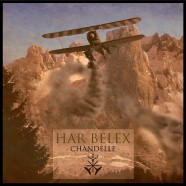HAR BELEX: A UNIQUE PERSONALITY
LISTEN (IN SPANISH) THIS INTERVIEW IN OUR PODCAST (ESPECIAL HAR BELEX)
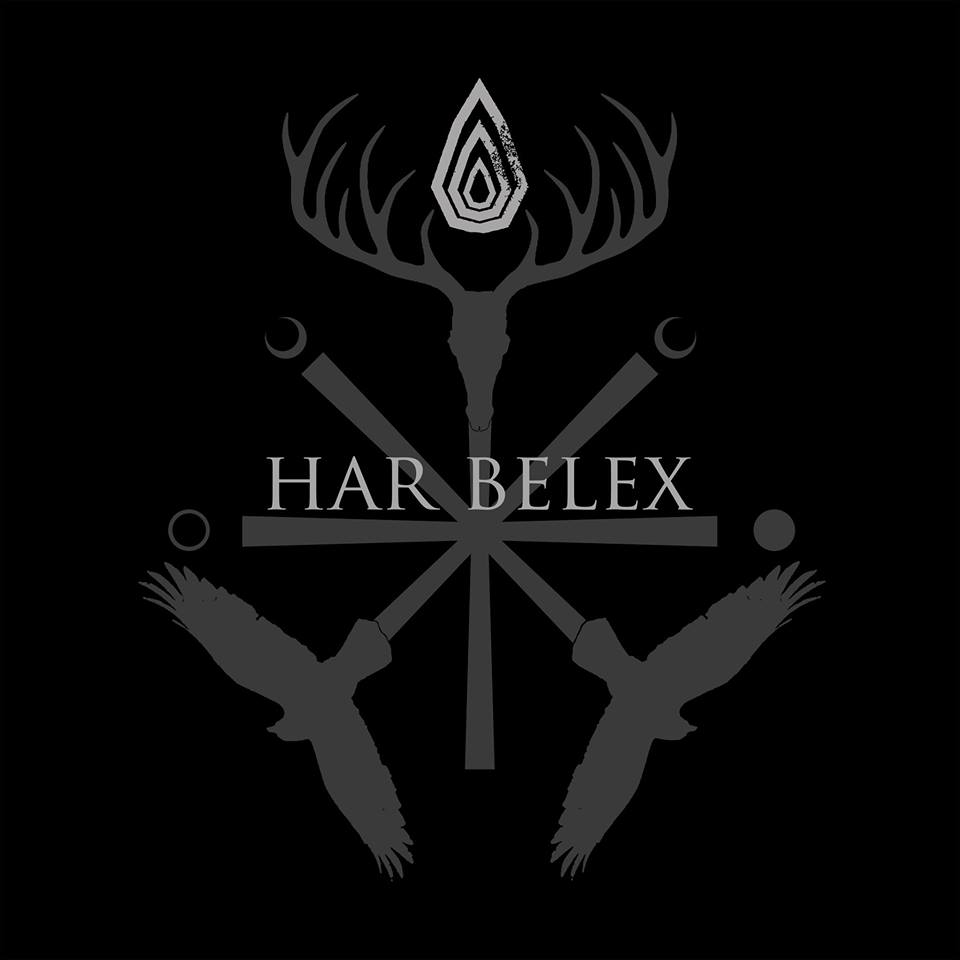 Firstly, it would be nice to introduce yourselves for those who don’t know you yet.
Firstly, it would be nice to introduce yourselves for those who don’t know you yet.
Manix S.: Har belex is composed by Salva and me, Manix, although at concerts we are supported by two musicians from Vitoria, Aritz Uriarte and David Sagastume. Salva lives in Granada and I’m from Vitoria, so H Belex’s home is these two cities.
Salva Maine: Manix and I met a lot of years ago as a result of our electronic music bands and well, we have continued to have a good friendship all this time and now has appeared this new project and here we are…
You just published your new album (CD and vinyl), ¿How is the public feedback being? We are fascinated about it…
M: Well, thank you, we are very very very happy, the feedback from the public and the critics are unbeatable. As courtesy, sales both through Caustic Records and some european mailorders and Rara Avis in Madrid… The record it has been a bestseller in all this places this months. Then well, we’re very happy as we’ve told you.
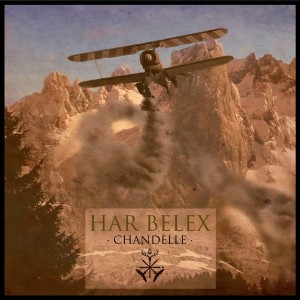 The CD (and vinyl) has a beautiful and cared design. ¿How important is this for you?
The CD (and vinyl) has a beautiful and cared design. ¿How important is this for you?
M: Yes, of course, from our point of view the design of an album is fundamental and we think that it has to collect the spirit of what we, musically, have done. The design was made by Juan Pablo from Stillme and he truly has made a great job and we are delighted with the result.
Musically you handle different registers but you join them perfectly. Purely acoustic guitar sounds, sometimes almost martial percussions, cellos, pianos. Some songs are more ethereal, some others are stronger. With all of this you got to sound very individual and perfect soon. Very recognizable.
M: Well, both Salva and I have wide musical influences, not only from neofolk or darkfolk, even from EBM or electro, but beyond, right? We’ve played or been part of postpunk and hardcore music bands. I think that is noticeable in what we compose and obviously in what we make for Har Belex. I think it gives our songs, as you say, a unique personality.
Both of you come from the electronic scene (to put it in some way), more or less danceable, more or less experimental. Nevertheless, Har Belex is much more organic. ¿Are you comfortable in this environment or are you planning to join both “scenes”?
S: Well yes, we really feel very comfortable. For my own part, I like to try out with the voice, the different registers, new styles or some new stuff… I feel right there. In the other hand what you say about get together both styles… I think that what we make in the other bands is not mixable with neofolk. We could put some electronic elements in some songs but making a blend of both styles has no sense at all.
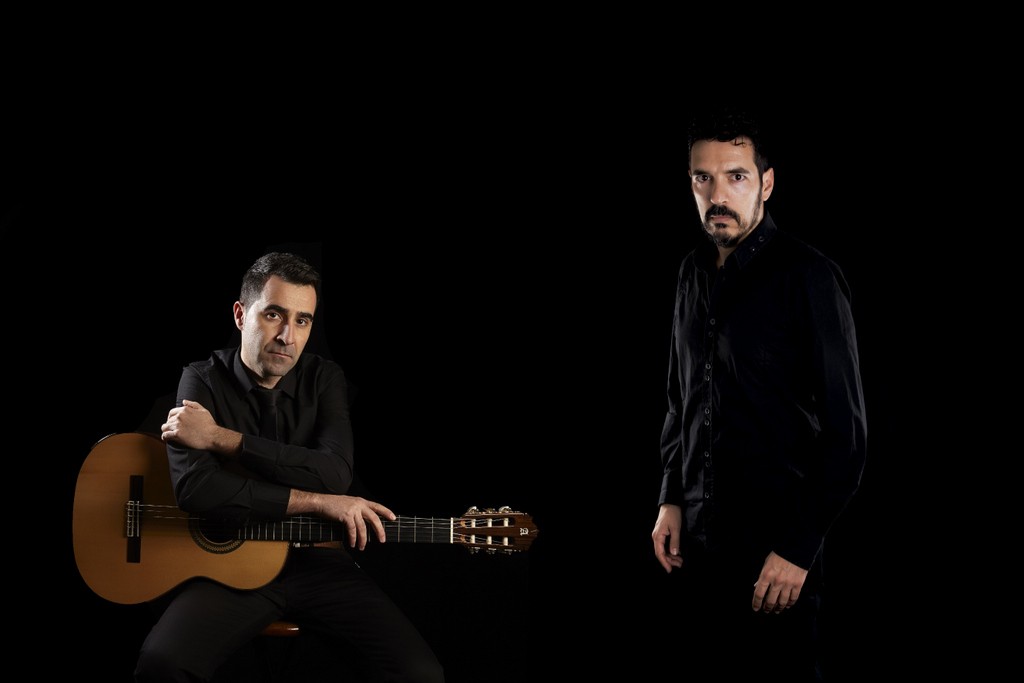
In the CD you blend different languages in different songs, basque, spanish, german and english, but you always run away from the obvious things. For example, everyone would assume Gernika or Der Akelbetz would be singed in basque because of the topic, but they are in english and german respectively…
S: The language choice is made according to the song’s sound instead of its topic. For example in Der Akerbeltz we first chose the language, german sounded great, and then the lyrics. When it is singed in german it gave rise to some kind of tale. To me, german seems to be some kind of «storyteller». You only have to listen to some songs by Rammstein, they are like tales, and the lyrics are like tales too. We thought of making a story about witches and then Manix thought of the legendary figure of Der Akerbeltz, that is the black goat, the devil; making a jokingly story with covens and the goat.
Continuing with the lyrics, you show very different topics: the Nature, the horror of war, traditional topics…
S: We don’t put ourselves restrictions; we don’t set ourselves a limit of what to write about. We write about what we think in that moment. Anything can come up. Of course, I think that when we write the lyrics, talking so much about nature is because our personal concerns, we both live in the countryside and it is normal that this topic appears. In fact, I have written some lyrics taking a walk through the country. And on the other hand, we are worried about the dehumanization: everything is focused on benefits, percentages and then the traditional world it’s like a look back where that dehumanization didn’t exist. I think it is important to look back to know where the future has to go.
Do you normally compose the lyrics from the melody or on the contrary? Is there a third way?
S: Usually, Manix composes the music, he sends it to me, I listen to it and think of the right lyrics for it. Sometimes we think about the topic together and I develop the lyrics around it. Except for Basoan whose lyrics are by Manix.
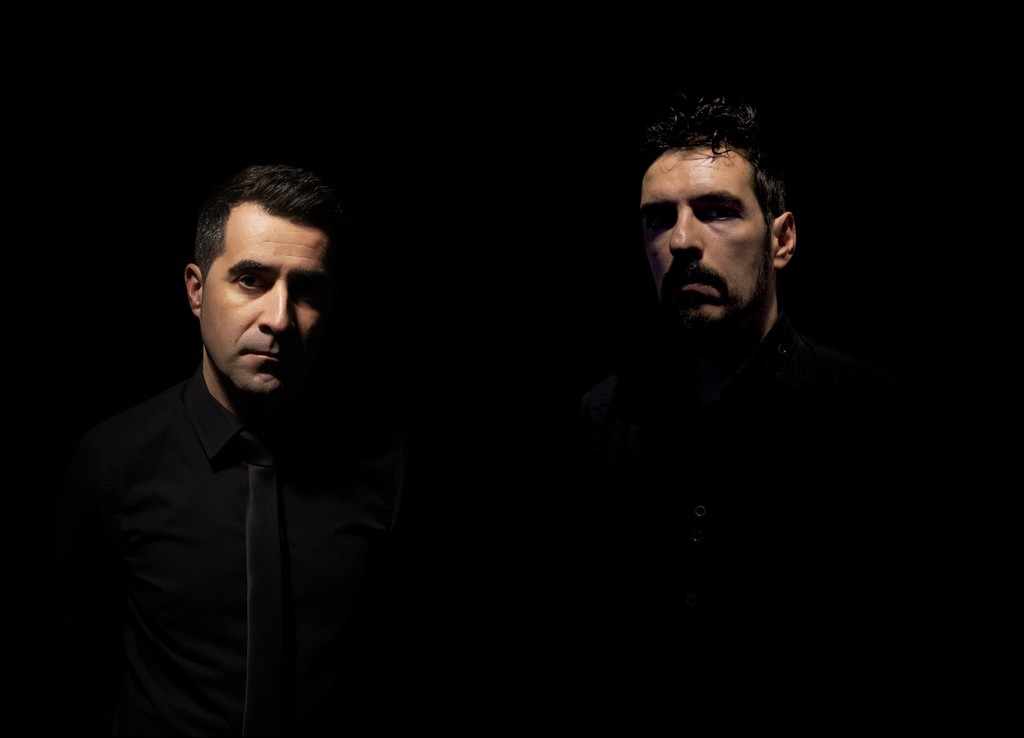
We had the chance to see you live with Rome and Oniric. Your live concert seemed to us simply spectacular (in all ways). ¿Do you have the intention to repeat it soon introducing Chandelle? ¿Do you feel more like a studio group or vice versa?
M: Yes, the truth is that the concert in Madrid to be our first concert, our introduction live as Har Belex, all went very well, everything sounded well and the most important is that the public’s reaction was very good and the «post» comments were great. Yes, we will introduce Chandelle live soon, will be February 28 in the Gruta 77 in Madrid.
If we feel more like a live band or a study one? We feel right in both facets; I enjoy a lot with the machines, the guitars, producing and composing in the studio, but any way, we both enjoy the concerts and enjoy equally.
Focusing in Chandelle, Edificios Anónimos (as you know, for us is the best song of the album hahaha) especially excites us. The lyrics are marvelous; I think it can lead to a lot of interpretations. ¿Which is the “good one”?
S: Well, precisely the lyrics from that song are an adaptation from a poem by Kepa Murúa, so maybe we should ask him. The lyrics talk about a demolished building with people inside it. You can keep the literal idea or extrapolate it to a personal or social collapse. I, personally, keep the images, the sensations that it transmits, the smell of the wreckage, the barking of the dogs that look for survivors… but in the end, the listener is the one who decides which is the meaning of the song for him, that is the most important thing.
The only song in the LP written by Manix S. Is Basoan, however all the music is composed by him…
M: In Har Belex I compose, produce and record the instruments and Salva makes the voices and the lyrics. Basoan is a song in Basque, I really wanted to make a song in Basque and well, I made it. The song is simple, but I made it because of the fact that was going to be in Basque.
Annual tries, I think, to express the horror of a specific chapter in Spain’s history, one that is especially terrible and absurd. But without any fussiness…
S: Yes, the story in Annual is impressive because it was a military defeat that supposed the loss of ten thousand spanish soldiers. The song talks about the desolation of a soldier that survives this massacre and walks through the desert physically and mentally beaten. It is one of the most heartbreaking song of the album, it has a very interesting topic but very violent. This song is very odd because some non-spanish speaking listeners, english even germans, have told us that it «touched» them and that says a lot about a song that can convey feelings regardless of language.
In the songs which talk about nature we can notice the influences of the mediterranean folk, while the “central european” resemblance seems to be taken for the lyrically stronger songs. ¿Do you think that the fact of joining a person from Granada and another from Álava has to do with this blend of north-south that we can appreciate in your music or is it just coincidence?
M: As I told before, I compose all the music and Salva the voices, consequently, if you grab the album, all the musical bases aren’t colder than Salva’s voice because it is more mediterranean, I mean: within the musical lines there are songs with mediterranean air and some others with darker air or colder one, and it’s the same thing for Salva, according to the music or the lyrics, he sings in a more-mediterranean way or not. Saying that the part of the mediterranean songs match my way or Salva’s way of composing and the nostalgic ones matches mine, it seems a little bit risky. Although it is true, that our birthplace affects our music, that’s true, in addition this is a fact that more people are noticing, we aren’t aware of this and it really seems interesting.
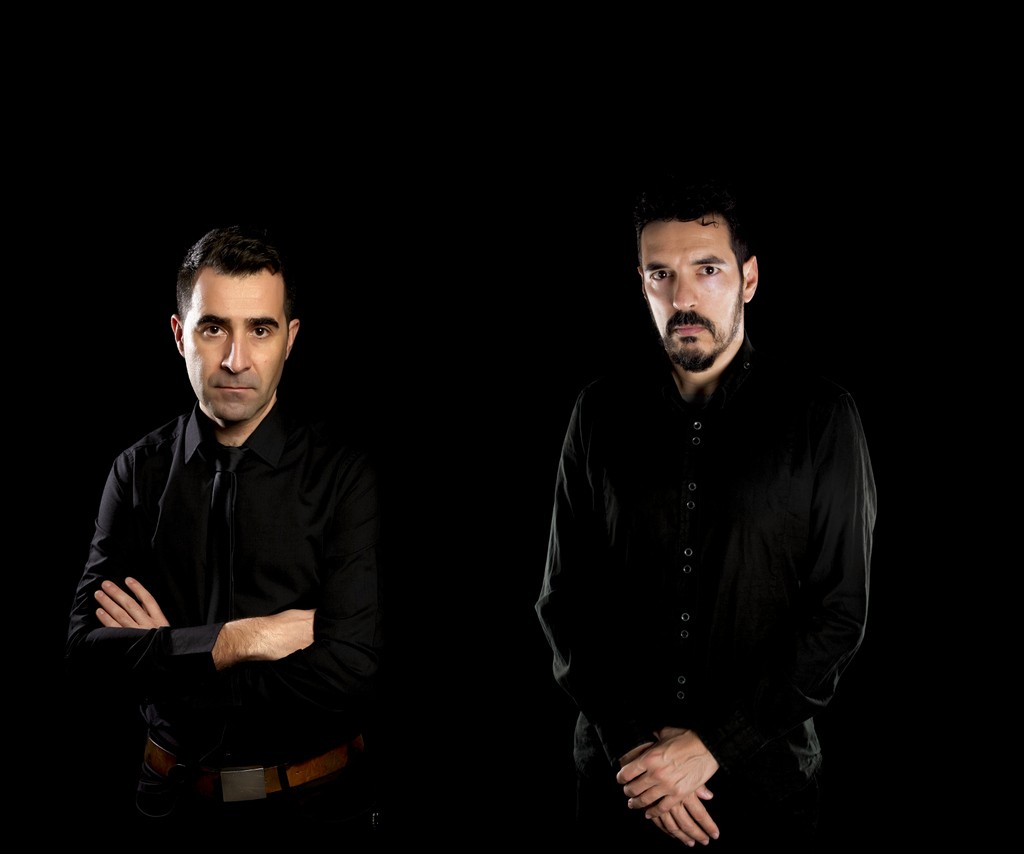
A Ray Of Moon seems to have an especial sensitivity. ¿What inspired you to compose it?
S: Ray Of Moon is based in a story by Gustavo Adolfo Béquer with the same name in Spanish, El Rayo de Luna. This is something we wanted to make, using some spanish classic to write something, and with Béquer we felt that it gave place to make this, with Las Rimas y Leyendas he has a lot of stories with an atmosphere that was great to mix it with one of our songs. And checking Las Rimas y Leyendas, I found this tale about Ray of Moon that really attracted my attention because it deals with a man that one night sees the image of a beautiful woman running through the forest, the city and he chases her and after that, he realizes that everything was made up by his mind and was a reflection from the moon. I thought it was a very interesting to make a song around this idea, and the sound of it led to make it in English because it was the language that suit it.
¿Which plans do you have for the immediate future? ¿Are you going to introduce the album live? We wish Madrid to be one of the chosen “squares”…
M: Currently we are deeply involved in the promotion of the album and it is taking us a long time. Future plans? Next thing will be the concert of February 28 in Madrid in the Gruta 77; also we are going to make this concert with the german band, Darkwood, that is one of our favorite neofolk bands. Later, on March 7 we’re going to be at the Artium Museum in Vitoria, and we’re waiting to confirm some other date in Spain. This summer we’ve confirmed a date in Germany and we’re waiting to confirm another one there, so we wish to make a «minitour» not only to introduce the album, but to introduce ourselves as a band to the public from there.
To sum up, as we have been doing lately, I want to ask you three more questions (frivolous too, it must be said, in case the last ones weren’t frivolous enough)
From all the songs that you have made in all this years, in all your projects, if you had to pick three songs ¿which ones would be?
M: This is a very difficult issue, really. They say that songs are like sons, I don’t have children, but it might be like that, you love them all equally. In my case, along my personal career and my different projects, I’ll have edited discographically 60 or 70 songs so it’s not easy to choose three of them. Undoubtedly, Har Belex is the last thing I’m involved in and in which I am more motivated, but I could not choose three of my songs.
S: I couldn’t tell you my favorite songs, I like them all. But to take a risk I will choose War is Over by Culture Kultür, that was one of the firsts songs I recorded; Springtime because of a similar thing, it was the first song in which we began to work with in Har Belex, and Annual, which is a song that live gives place to express myself and project to the public.
We are sure that many bands and songs have influenced us… ¿Which three songs from other bands would you like to write if you had the chance?
M: This is a difficult question because of the number of bands I like and the influences I think I have, it’s very difficult to choose three songs; what neofolk scene refers to, any album by Forseti, Darkwood, Rome, Argine, Dies Natalis, they have a pair of songs that I would like to be part of, but to be more original I will tell three songs that have been with me for a long time: Worlock by Skinny Puppy , Hey Hey My My by Neil Young and Carmina Burana by Carl Orff.
S: I like a lot of styles too and songs that I would like to make. I may say Beloved by VNV Nation from the electronic scene, that is a very emotive song but very lively, and from the neofolk scene I could say Bastard Angel by Spiritual Front or One Fire by Rome.
Apart from the other songs and the versions you have made, ¿Which other three songs would you like to make a new version of?
S: This question is very difficult too because usually this are things that you think when you listen to something and you say «damn! this song could sound great if we make a version of it», but right now I couldn’t tell you which one will be the next.
M: Nowadays with Har Belex we’ve made versions of people like Chris Isaak or Neil Young. We like to make versions of styles from our point of view. I understand that this versions we make go along the same lines in the future.
Thanks a lot for everything!

